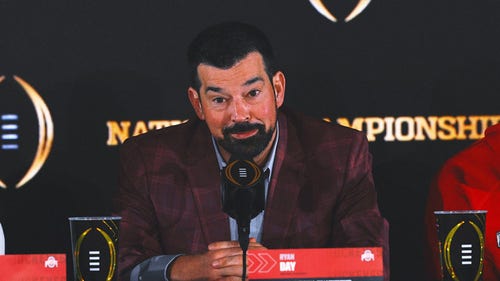
Joel Klatt explains why Colorado's move to the Big 12 is all about stability
If you are looking for a simple, straight-to-the-point explanation of why Colorado made the decision to bolt from the Pac-12 and return to the Big 12, the answer can be summed up in one word.
Stability.
Look no further than the joint statement from Colorado Chancellor Phillip DiStefano and Athletic Director Rick George when the move was officially announced on Thursday afternoon.
"After careful thought and consideration, it was determined that a switch in conference would give CU Boulder the stability, resources, and exposure necessary for long-term future success in a college athletics environment that is constantly evolving."
FOX Sports’ Joel Klatt explained why stability was the determining factor in Colorado’s move in a recent episode of his podcast, "The Joel Klatt Show."
"There was one television deal to be had between the Pac-12 and the Big 12, and these conferences had two very different outlooks on that," Klatt explained. "The Big 12’s belief was that they needed to get to table first and eat first, and so they did."
Klatt’s comment is in reference to the six-year, $2.28 billion TV extension deal the Big 12 Conference struck with ESPN and FOX last year, an agreement that runs through 2030-31.
Big 12 Commissioner Brett Yormark, who was a recent guest on Klatt’s summer podcast series, "The Joel Klatt Show: Big Noon Conversations," said the deal was critically important to helping the conference solidify its future.
"It’s the true catalyst," Yormark said of the TV deal, which he estimated will make up 60% of the conference’s revenue. "I know stability gives you a true seat at the table. It gives you that voice that we were certainly looking for long-term. And we’ve leveraged it. We’ve leveraged it to innovate, to create."
Meanwhile, the Pac-12’s quest for a new media rights deal continues, and now, one year after conference headliners USC and UCLA announced their intentions to depart for the Big Ten, the next big domino has fallen, as the Buffaloes will officially join the Big 12 for the 2024-25 academic year.
Pac-12 Commissioner George Kilavkoff was asked during last week’s Pac-12 media day where things stood with the conference’s media rights deal, which is set to expire in July 2024. The second-year commissioner doubled down on his belief that the conference’s patience will eventually pay off. Klatt disagreed with that assessment.
"I believe last week was the straw that broke the camel’s back, at least from Colorado’s perspective," Klatt said in regard to Kilavkoff’s comments. "Once the Big 12 solidified their TV deal, all that mattered for the remaining 10 schools in the [Pac-12] Conference was, what does our deal look like? What’s the number?
"The schools were asking for stability … and it never materialized."
Colorado’s departure could very well be one of several dominoes set to fall in the near future for the Pac-12, which is now down to nine members. Multiple reports have mentioned Arizona, Arizona State and Utah as schools that are coveted by the Big 12.
"Somebody else is gonna be coming," Klatt said. They [Big 12] aren’t going to play football with 13 teams. The Big 12 is not done, and they’re obviously gonna want somebody that wants them."
While college football fans will likely now be focusing on who might be next to move, Klatt was quick to point out the importance of this decision for Colorado, which puts a stamp on an incredible offseason transformation.
"In the span of eight months, Colorado’s AD [George] and chancellor [DiStefano] have made massive decisions that were bold, and, to put it lightly … legacy decisions," Klatt said. "The first being hiring Deion Sanders, the second being this move to the Big 12.
"You can make an argument that in the last eight months, no athletic director has done more for his school than what Rick George has done at the University of Colorado … These decisions are way beyond what I think everybody could possibly imagine."
In addition to the work George has done to bring stability to the school’s athletic programs, Colorado’s move to the Big 12 has also strengthened the position of Yormark, who has seriously pursued expansion since being named the conference’s commissioner last year.
"The new commissioner is out there and seems to be making things happen," Klatt said of Yormark. "Colorado now helps themselves because they get into a position where they are hitching their wagon to a leader that’s increasing his strength in terms of the position he holds within the sport globally."
What comes next as it relates to conference realignment is anyone’s guess. There will be plenty of eyes focused on the Pac-12’s impending media rights deal, and where the Big 12 looks next when it comes to adding additional institutions.
But for now, the shine is on Colorado's move back to the Big 12 Conference, which should serve as a reminder that nothing is ever stationary in the ever-evolving world of college athletics.
"Ultimately, what they [Colorado] saw was more stability, more exposure, a revenue picture that looked much more stable," Klatt said. "In a lot of ways, when you sit back and look at it, this was a bit of a no-brainer."














